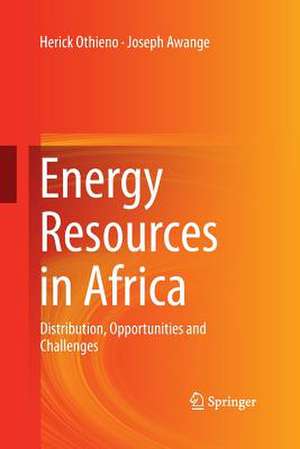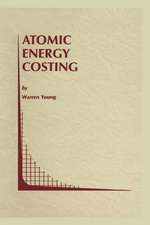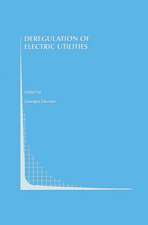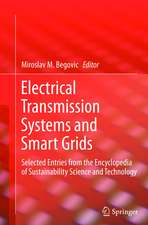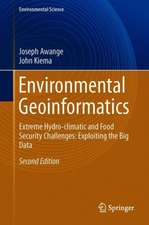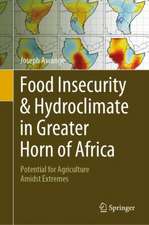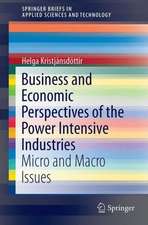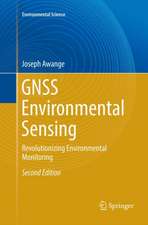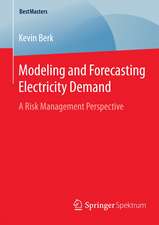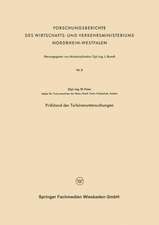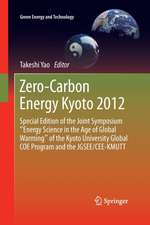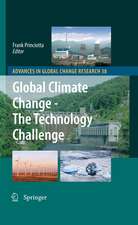Energy Resources in Africa: Distribution, Opportunities and Challenges
Autor Herick Othieno, Joseph Awangeen Limba Engleză Paperback – 23 aug 2016
| Toate formatele și edițiile | Preț | Express |
|---|---|---|
| Paperback (1) | 643.65 lei 6-8 săpt. | |
| Springer International Publishing – 23 aug 2016 | 643.65 lei 6-8 săpt. | |
| Hardback (1) | 649.87 lei 6-8 săpt. | |
| Springer International Publishing – 30 oct 2015 | 649.87 lei 6-8 săpt. |
Preț: 643.65 lei
Preț vechi: 757.24 lei
-15% Nou
Puncte Express: 965
Preț estimativ în valută:
123.18€ • 128.12$ • 101.69£
123.18€ • 128.12$ • 101.69£
Carte tipărită la comandă
Livrare economică 15-29 aprilie
Preluare comenzi: 021 569.72.76
Specificații
ISBN-13: 9783319387352
ISBN-10: 3319387359
Pagini: 344
Ilustrații: XV, 344 p.
Dimensiuni: 155 x 235 mm
Greutate: 0.51 kg
Ediția:Softcover reprint of the original 1st ed. 2016
Editura: Springer International Publishing
Colecția Springer
Locul publicării:Cham, Switzerland
ISBN-10: 3319387359
Pagini: 344
Ilustrații: XV, 344 p.
Dimensiuni: 155 x 235 mm
Greutate: 0.51 kg
Ediția:Softcover reprint of the original 1st ed. 2016
Editura: Springer International Publishing
Colecția Springer
Locul publicării:Cham, Switzerland
Cuprins
Global Energy Perspective.- Energy Resources in East Africa.- Energy Resources in Southern Africa.- Energy Resources in Western and Central Africa.- Energy Resources in Northern Africa.- Principles of Renewable Energy Conversion Principles.- Options and Challenges.- The Way Forward.
Textul de pe ultima copertă
“By harnessing the wind and sun, your vast geothermal energy and rivers for hydropower, you can turn this climate threat into an economic opportunity.” US President Obama’s address to the African Union (2015)
Africa is considered one of the poorest continents in the world, mainly because of its low per capita energy consumption in Sub-Saharan region. This view and its associated resource management strategy are based on the misconception that Africa lacks sufficient energy resources to drive its development agenda.
This book provides information on the distribution of the available energy resources throughout the continent and how its management affects the development of individual states. Analyses of the countries’ energy potentials, exploitation levels and distribution mechanisms are provided with a view to identifying additional factors that are stifling Africa’s economic development. The authors provide an in-depth analysis of the advantages and disadvantages of different energy sources in terms of their impacts on Africa’s economic development. This analysis is based on the assertion that Africa is indeed blessed with abundant energy resources, which have not been effectively exploited. There are many challenges and opportunities in each country that are viewed with due consideration given to the prevailing national resource management practices. Leaders’ desire to control resources has encouraged corruption, theft, and mere selfishness to thrive. In addition to the negative impacts of these factors on energy development initiatives, there is also a general lack of institutional support for progressive energy management. The book offers a valuable guide for developers, investors and researchers by providing in-depth analysis of Africa’s energy development trends.
Africa is considered one of the poorest continents in the world, mainly because of its low per capita energy consumption in Sub-Saharan region. This view and its associated resource management strategy are based on the misconception that Africa lacks sufficient energy resources to drive its development agenda.
This book provides information on the distribution of the available energy resources throughout the continent and how its management affects the development of individual states. Analyses of the countries’ energy potentials, exploitation levels and distribution mechanisms are provided with a view to identifying additional factors that are stifling Africa’s economic development. The authors provide an in-depth analysis of the advantages and disadvantages of different energy sources in terms of their impacts on Africa’s economic development. This analysis is based on the assertion that Africa is indeed blessed with abundant energy resources, which have not been effectively exploited. There are many challenges and opportunities in each country that are viewed with due consideration given to the prevailing national resource management practices. Leaders’ desire to control resources has encouraged corruption, theft, and mere selfishness to thrive. In addition to the negative impacts of these factors on energy development initiatives, there is also a general lack of institutional support for progressive energy management. The book offers a valuable guide for developers, investors and researchers by providing in-depth analysis of Africa’s energy development trends.
Caracteristici
A useful guide for developers, investors, researchers and environmentalists Provides in-depth pioneering African energy scenario Provides relationship between available energy resources and developmental trends in Africa Includes supplementary material: sn.pub/extras
